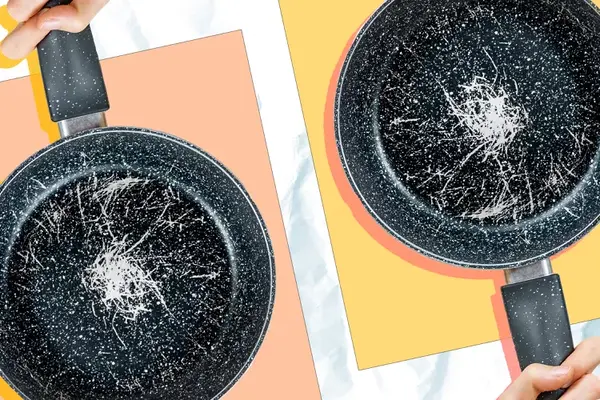Beat the Heat, Soothe Your Skin: Expert Tips for Managing Eczema During a Heat Wave
The mercury’s rising, and so might your eczema worries! This past week’s scorching heat wave has many seeking refuge from the blazing sun. But for those with eczema, the heat and humidity can be a double whammy, triggering uncomfortable flare-ups.
Fear not, eczema warriors! Here are some expert tips from dermatologists to help you manage your eczema and keep your cool during this heat wave:
Eczema Flare-Ups: The Summer Foe and How to Fight Back
Summer’s here, and while most people welcome the sunshine, for those with eczema, it can be a time of dreaded flare-ups. But why exactly does heat trigger these itchy outbursts? Let’s delve into the science behind eczema flare-ups and explore strategies to combat them.
The Compromised Barrier: Why Eczema Makes Skin Vulnerable
People with eczema have a weakened skin barrier to begin with. This barrier acts like a fortress, protecting the body from irritants and allergens. However, Azadeh Shirazi, MD, a board-certified dermatologist, explains that extreme temperatures can further disrupt this crucial defense system. Imagine the hot weather as an army trying to break through already weakened castle walls.
Sweat: A Double-Edged Sword
Sweating is a natural response to heat, but for those with eczema, it can be a double-edged sword. While it helps regulate body temperature, sweat contains chemicals like sodium, chloride, nickel, and cadmium. Dr. Shirazi highlights how these chemicals can act as irritants, worsening eczema symptoms. Think of sweat as enemy reinforcements arriving to weaken the castle’s defenses even further.
Moisture Loss: The Dehydration Chain Reaction
Heat not only disrupts the skin barrier but also increases water loss from the skin. This dehydrates skin cells, depleting the moisture barrier even more. Dr. Shirazi describes this as a chain reaction – the heat weakens the barrier, leading to more water loss, which further weakens the barrier, creating a vicious cycle that worsens eczema.
Sensitive Skin on High Alert: Feeling the Summer Heat
In simpler terms, because eczema sufferers already have sensitive skin, they’re much more likely to feel the effects of hot weather on their skin. Imagine someone with sensitive ears being bombarded by loud summer music – the discomfort is amplified.
By understanding these factors, we can develop strategies to protect our skin and prevent eczema flare-ups during the summer. Stay tuned for the next section, where we’ll explore expert tips for keeping your skin cool, calm, and collected!
Summer Survival Guide: Beat Eczema Flare-Ups with These Expert Tips
Hot summer days are upon us, and while many welcome the sunshine, those with eczema know it can be a time of dreaded flare-ups. But fear not! Here’s a summer survival guide packed with dermatologist-approved strategies to keep your skin cool, calm, and collected.
1. Moisture is Key: Repel the Dehydration Chain Reaction
- Hydration Hero: Moisturize Religiously: Dr. Azadeh Shirazi, a board-certified dermatologist, emphasizes the importance of regular moisturization. This helps your skin stay hydrated and strengthens the skin barrier, which is crucial during hot weather when water loss increases. Aim to moisturize immediately after showering and throughout the day.
- Seal of Approval: Choose Eczema-Friendly Products: Look for moisturizers with the National Eczema Association (NEA) seal of acceptance. This seal signifies that the product has been rigorously tested and is safe for eczema-prone or sensitive skin. Dr. Emily Becker, an assistant professor of dermatology, recommends avoiding products with irritants like fragrances, perfumes, and dyes.
2. Breathable Fabrics: Your Skin’s Best Friend
- Ditch the Itch: Embrace Loose and Light Clothing: Both Dr. Shirazi and Dr. Becker recommend loose-fitting and lightweight clothing when temperatures rise. Natural fibers like cotton and bamboo are ideal – they’re soft, breathable, and hypoallergenic. For undergarments, Dr. Shirazi suggests silk or loose, breathable sports bras to minimize friction and chafing. Skip polyester and wool, as these fabrics can irritate the skin.
- Wash Before Wear: Remove Hidden Irritants: Before sporting your new summer wardrobe, give those clothes a wash. This removes any chemicals or irritants that might lurk in the fabric and potentially trigger flare-ups.
3. Hydration from the Inside Out
- Drink Up for Healthy Skin: Dehydration affects everyone, and your skin is no exception. Dr. Shirazi highlights the importance of staying hydrated for overall health and to strengthen the skin barrier, especially crucial for those prone to eczema. Adequate hydration acts as a defense against eczema triggers.
4. Cool Showers: Soothing Relief for Irritated Skin
- Sweat’s Nemesis: Embrace the Cool Shower: Sweat can be a real bother for eczema-prone skin. Dr. Jason Miller, a board-certified dermatologist, suggests cool showers as the perfect antidote. They help wash away sweat after workouts and cleanse the skin of irritating chemicals like chlorine after swimming. Resist the urge for hot showers, as they can dry out and irritate your skin.
5. Air Conditioning: A Double-Edged Sword
- Cool Comfort with Caution: Utilize Air Conditioning Wisely: Dermatologists recommend staying cool indoors with air conditioning whenever possible, but with some precautions. While AC keeps you cool and reduces sweat, Dr. Shirazi warns that it can also dry out the air, which can negatively impact your skin.
- Combat Dryness with a Humidifier: To counteract the drying effects of air conditioning, Dr. Shirazi suggests using a humidifier to maintain indoor humidity levels. Additionally, avoid exposure to irritating chemicals used for AC cleaning and maintenance.
By following these expert tips and being mindful of your summer habits, you can effectively manage eczema and enjoy the warmth of the season without worrying about flare-ups.
Beyond Self-Care: When to Seek Professional Help for Eczema Flare-Ups
While the tips we’ve explored can be powerful allies in managing eczema during summer, there are times when seeking professional help becomes crucial. Here’s when it’s best to schedule an appointment with your dermatologist:
Hitting a Wall: OTC Products and Skincare Routine Not Enough
If your heat-induced eczema flares persist despite using over-the-counter (OTC) products and faithfully following your skincare routine, it’s time to consult your dermatologist. They can assess your situation and provide more targeted solutions.
Red Flags: Increased Pain, Swelling, or Oozing
Certain symptoms should trigger a dermatologist visit immediately. Be on the lookout for increased pain, swelling, or oozing from your eczema lesions. These could indicate a more serious underlying issue that requires professional attention.
Prescription Power: Addressing Symptoms with Tailored Medications
Dermatologists can prescribe prescription-strength medications if needed to effectively manage your eczema symptoms. These medications can offer greater relief than OTC options.
Ruling Out the Posers: Ensuring an Accurate Diagnosis
Dr. Jason Miller, a board-certified dermatologist, emphasizes the importance of a proper diagnosis. Sometimes, skin conditions like ringworm or allergic contact dermatitis can mimic eczema. A dermatologist can differentiate these conditions and recommend the appropriate treatment plan.
Building a Personalized Plan: Tailored Skincare and Trigger Identification
Beyond treating flare-ups, a dermatologist can work with you to develop a personalized skincare routine specifically tailored to your unique needs. They can also help you identify potential triggers that may be exacerbating your eczema in the summer heat.
Lifestyle and Skincare Guidance: Taking Control
Armed with a dermatologist’s expertise, you can make informed decisions about your lifestyle and skincare routine. This empowers you to take control of your eczema and minimize the impact of summer heat on your skin.
Remember, seeking professional help is not a sign of weakness. It’s a proactive step towards achieving healthy, comfortable skin throughout the summer and beyond.




